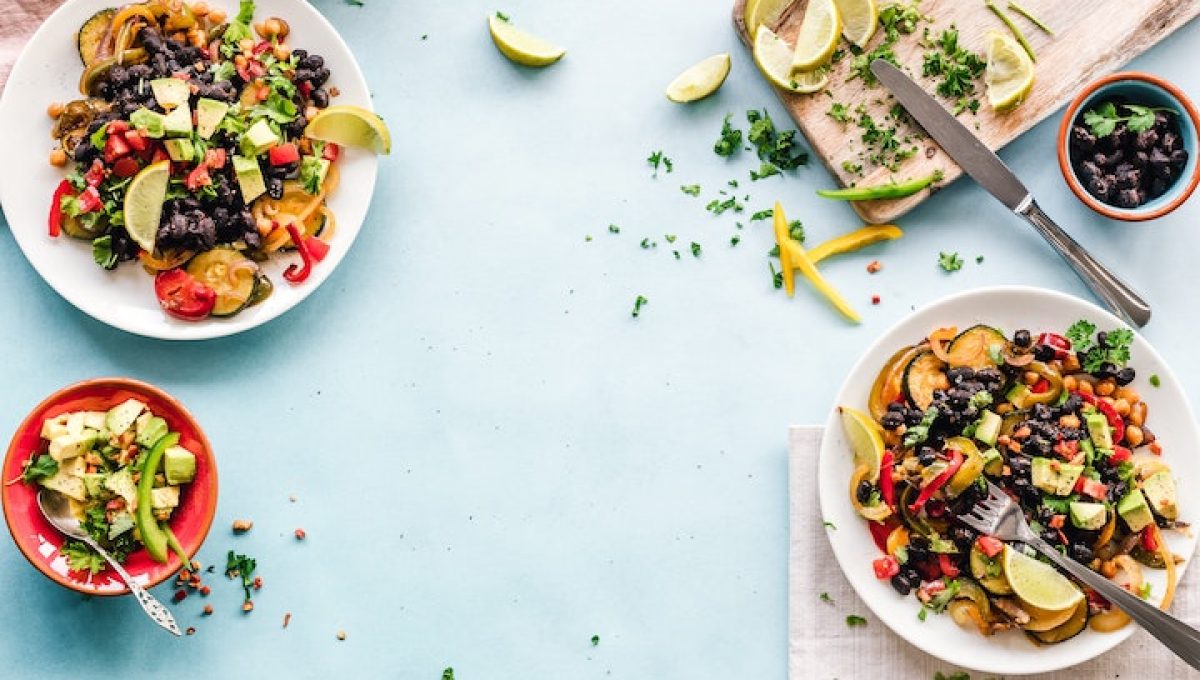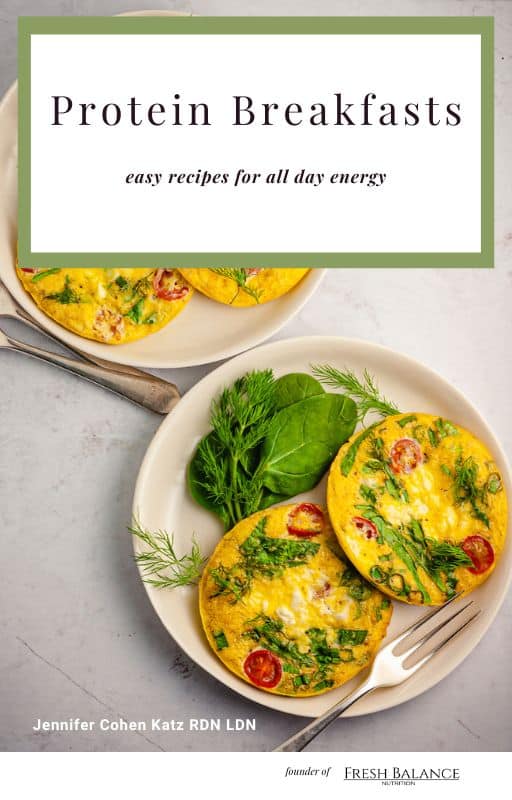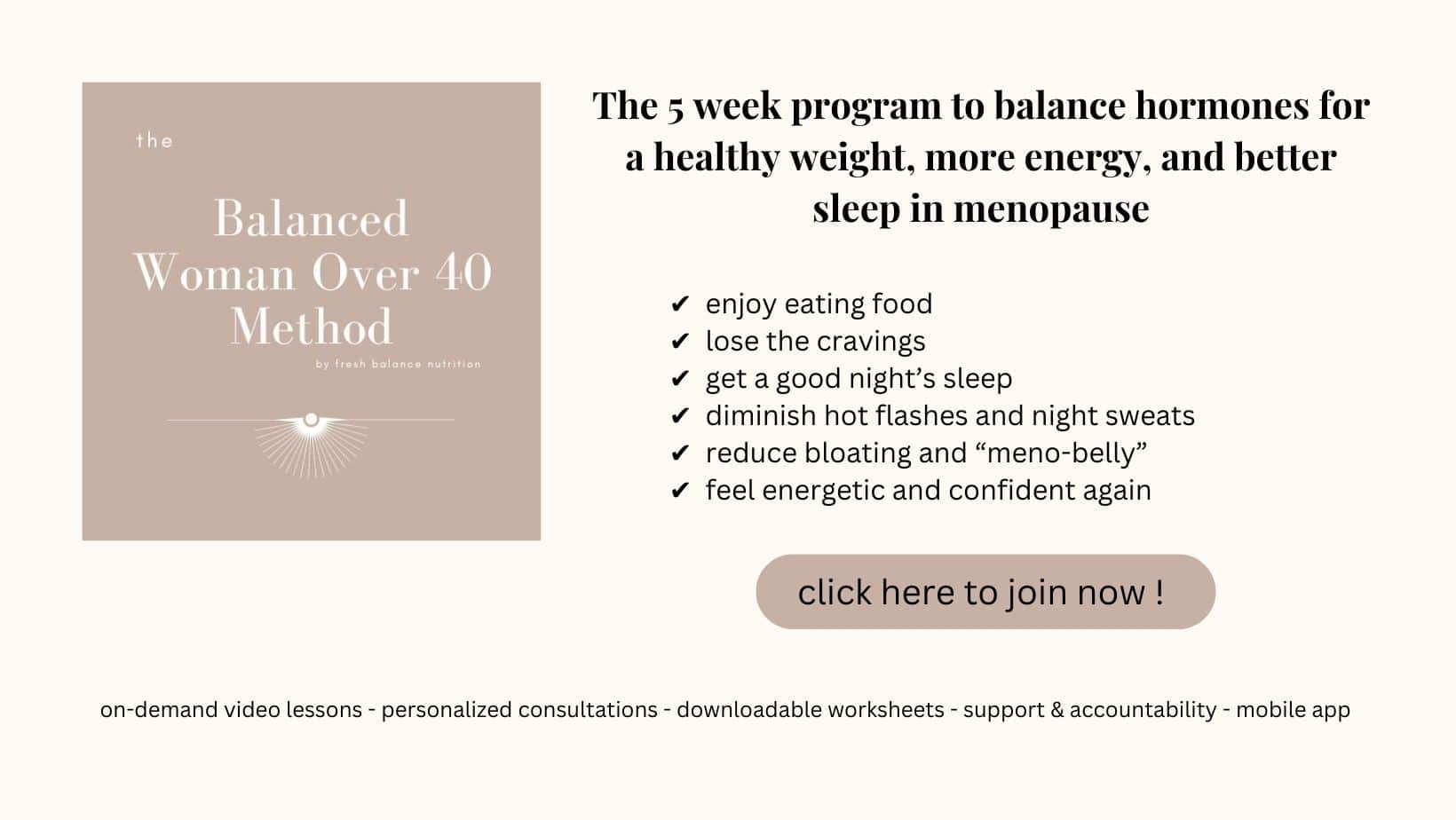Precisely what we eat in perimenopause and menopause can impact weight, muscle mass, disease, aging, mood, digestion, and much more. If there was a best diet for menopause what would it be?
Symptoms of Menopause
“Just tell me the best way to eat for menopause!”
Many women come to me frustrated with their weight. What I help them to understand is what is happening in their hormone imbalance story and how what they eat can improve their health. Estrogen, progesterone, and other hormones that help to decrease inflammation and protect our health before perimenopause begin to fluctuate and then decline in menopause. As a result most of us suffer with what can be a long list of super bothersome symptoms.
What may be going on behind the scenes in our body is something we should be aware of. Because we have lost the protective shield provided by estrogen and progesterone, we may be more at risk for heart disease, obesity, metabolic syndrome, type 2 diabetes, and hormone-related cancers such as ovarian, endometrial and breast cancer.

Osteoporosis and Muscle Loss
There are also physical changes that occur as hormones shift.
Bone strength and density become an issue without the protection of estrogen. Both what we eat and how we exercise can improve bone health and decrease osteoporosis.
We lose muscle mass very quickly in perimenopause and menopause. This means we lose strength and also diminish our metabolic powerhouse that helps to slow weight gain and limit fat mass. That’s no good. A strength training program is essential to stimulate new muscle development and keep the muscle tissue we have.
Food for Menopause Health
Portion size matters
Although the key to hormonal balance is to eat adequate protein, a variety of vegetables, and healthy plant fats, there is a calorie cap that we should be aware of. Be mindful of what typical portion measurements are, how often you are eating (or snacking), and whether you are making balanced food choices (too much bread? not enough vegetables?).
Fasting and the Ketogenic Diet
Many women expect to see results similar to those that men get from fasting or the ketogenic diet. That’s not always the case. Studies have shown that for perimenopausal and postmenopausal women these diet techniques are not beneficial.
Fasting down regulates thyroid function, signals the body to conserve energy, and increases stress. The ketogenic diet increases cortisol which is already elevated in menopausal women. In addition the risk is increased for thyroid dysfunction and cardiovascular disease.
Hormone Supportive Eating
We do know that women 35+ do well with a plant-based diet because the gut microbiome is enhanced and insulin sensitivity is increased. The best diet for menopause is one that includes a wide variety of vegetables and fruit, adequate protein, nutrient-dense grains, and healthy plant fats. The Mediterranean diet is a good example of an eating style that can provide all of these requirements.
Calcium, vitamin D, and magnesium are just a few of the nutrients needed for good bone health. A diet like the Mediterranean diet can supply the nutrient profile needed to slow down the rate of bone loss and help build strong bones. Yogurt, collards, almonds, and mushrooms are beneficial foods for bone health.
Plant foods such as vegetables, fruits, grains, nuts, and seeds contain the types of fiber (soluble and insoluble) we need to help lower cholesterol levels and regulate blood sugar and blood pressure.

Build Your Own
But maybe you are a pescatarian or a vegan or just don’t see yourself fitting the Mediterranean diet. You can build your own version of a hormone supportive way of eating as long as you hit these key elements.
Roasted salmon with spinach sautéed in olive oil and garlic over quinoa or curried chickpea stew with sweet potatoes and a side of fresh berries with chopped mint are both excellent meals for lowering disease risk, supporting bone health, and minimizing symptoms of menopause.
Balanced Recommendations
Are you are suffering with menopause symptoms and need help determining how to adjust what you are eating to start feeling your best? Seek out a nutrition professional to assess what you need and why. Fresh Balance Nutrition offers a free Rebalance Breakthrough Session to start the conversion to your healthiest, happiest self. Get started right HERE!








